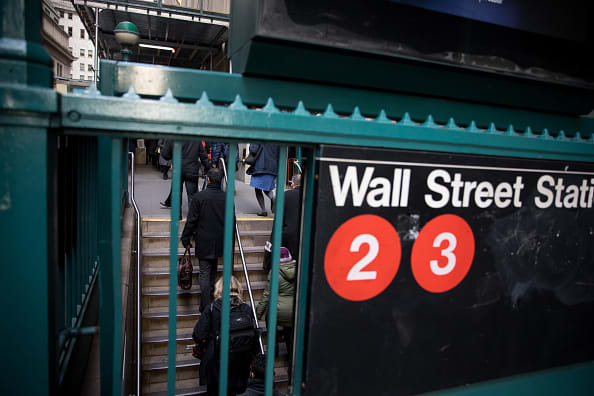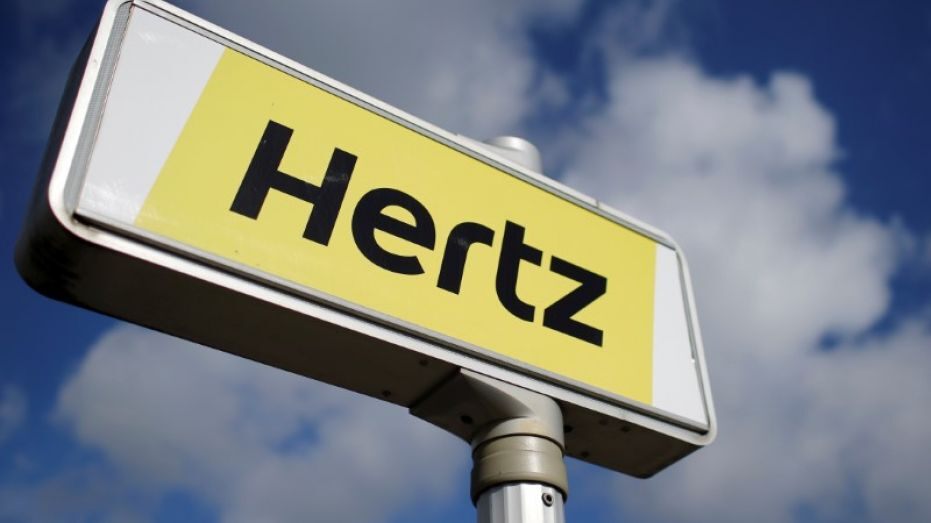
The Philadelphia Federal Reserve’s business conditions index hit its lowest level since July 1980 as activity in the region slumped this month. U.S. housing starts plunged 22.3% in March.
Thursday’s moves followed a slump during regular trading on Wednesday as gloomy economic data and anemic bank earnings fueled concerns over the coronavirus’s impact on the U.S. economy.
The Dow Jones Industrial Average dropped 445.41 points, or 1.9%, to 23,504.35 during Wednesday’s session. The S&P 500 slid 2.2% to 2,783.36 while the Nasdaq Composite closed 1.4% lower at 8,393.18.
Stocks were pressured by disappointing retail sales and manufacturing reports in the prior session.
Traders cited a plunge in March retail sales as a principal weight on equities on Wednesday. The worse-than-expected data showed retail sales during the month of March plunged a record 8.7%, the largest one-month decline since the department began tracking the series in 1992.
Manufacturing in the New York area also slumped by its biggest margin ever to a historic low, surpassing the levels seen in the throes of the Great Recession.
Despite the recent dismal economic data, some market strategists pointed to a slowdown in the daily number of new U.S. coronavirus cases and the flattening in the net number of hospitalizations in New York state as evidence that markets may trend upward in the coming weeks.
JPMorgan’s Marko Kolanovic said Wednesday evening that such improvements in health-care data could encourage state governments to take “baby steps” to reopen certain economies as soon as next week.
Kolanovic, the global head of quantitative and derivatives strategy at JPMorgan, reiterated his forecast that the U.S. equity market could reach new all-time highs as soon as the first half of 2021 if the economy is set to recover later that year.
Better health-care figures mean “we think it’s gonna be possible to reopen it sooner. We think within a week from now, you will start seeing some limited moves,” he told CNBC’s “Fast Money.”
“It’s going to be limited: I’m talking baby steps,” he added. “But that tells us that by the summertime, we may more substantially recover. And sometime next year — maybe the second half of next year — the economy reaches the high watermark. Which means that the market could reach a high watermark in the first half of next year.”
Energy stocks remain under pressure after U.S. oil fell to its lowest level in more than 18 years on Wednesday. The slide in West Texas Intermediate crude futures followed reports of the largest inventory build on record as well as a bearish report from the International Energy Agency. WTI slipped 1.19% to settle at $19.87, a price not seen since Feb. 7, 2002.
The Dow and S&P 500 remain more than 20% and 17.9% below their respective all-time highs set in February as marketplace jitters over the spread of the novel coronavirus and an uncertain vaccine timeline foster volatile trading on Wall Street.
Eager to restart significant portions of U.S. commerce, President Donald Trump again advocated for a gradual reopening of the economy during a press conference Wednesday evening.
The president said that there are also public health costs the result of keeping state economies closed. Lost income and benefit coverage, the president said, can also lead to significant and negative health outcomes.
“There has to be a balance. You know, there’s also death involved in keeping [the economy] closed,” Trump said from the White House. “We have to get back to work.”
“With all of that being said, we’re going to start with states and with governors that have done a great job. And they’re going to open it up as they see fit,” he said.
Subscribe to CNBC PRO for exclusive insights and analysis, and live business day programming from around the world.

